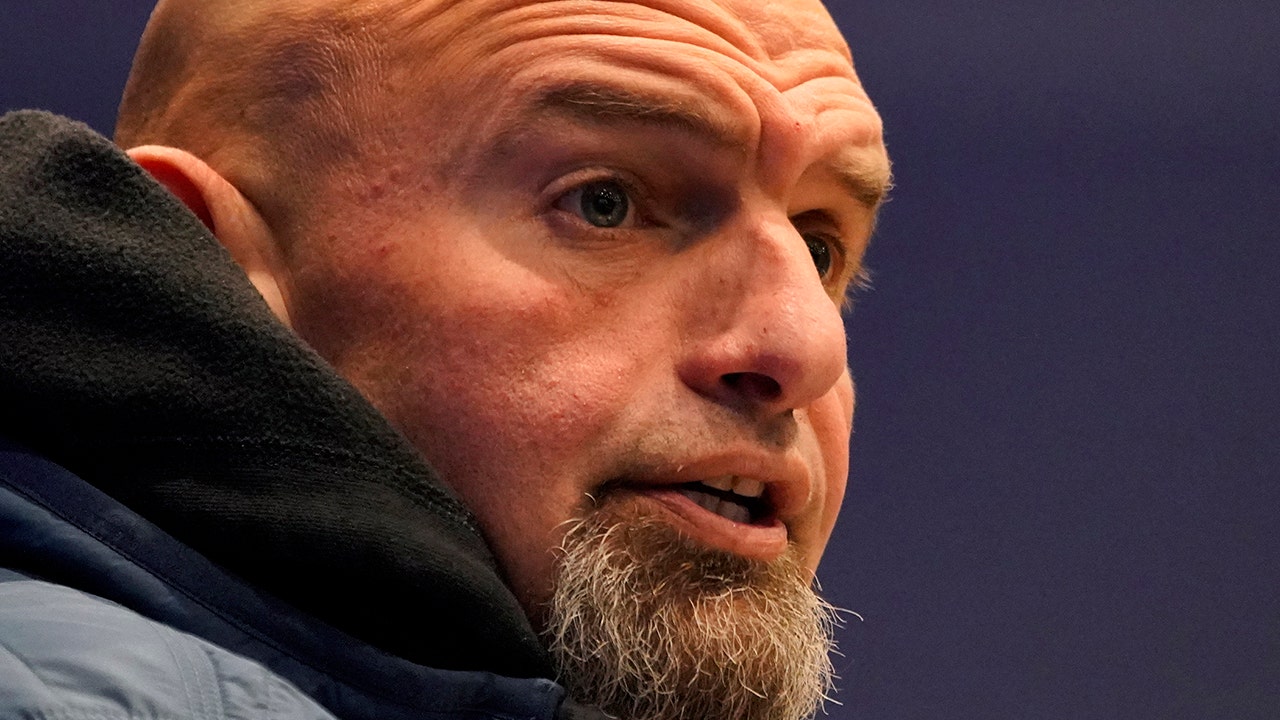You are using an out of date browser. It may not display this or other websites correctly.
You should upgrade or use an alternative browser.
You should upgrade or use an alternative browser.
Fetterman.... well that didn't take long
- Thread starter WingsOfGold
- Start date
BOP
Well-Known Member
Pre-existing condition.Dane Bramage.
Not to worry: obamacare will cover that.
BOP
Well-Known Member
Not much different than President Houseplant getting classified documents.Terrific, a nut getting classified briefings.

Fetterman receives special accommodation for classified briefings
Senator John Fetterman's office told FOX News Digital the senator has received a special accommodation during classified briefings for his auditory processing issues.www.foxnews.com
Oh, look! Chinese balloons!
BOP
Well-Known Member
That's just phucking great.John Fetterman to spend ‘weeks’ in hospital over depression: aide
It’s been hard for staffers to tell whether the 53-year-old Pennsylvania Democrat has been unresponsive in recent weeks due to hearing loss from the stroke he suffered in May — or because he’s in the throes of despair, the aide told NBC.
“[He’s] not hearing you or is he sort of crippled by his depression and social anxiety,” said the aide— adding that staffers were surprised by the severity of his depression.
The potential weeks-long mental health treatment won’t impact Fetterman’s ability to do his job in the future and his resignation is “not even on the table in any sense,” the aide insisted.
BOP
Well-Known Member
"A bit over 210, actually, sir. Give or take a little for the Earth's rotation and some minor dings to the ol' chronometer."Senator Fetterman's new room. See ya in 10 years or so.
On the Campaign Trail, John Fetterman Cited Doctors' Notes Attesting to His Vitality. Now He Says He Was Told to Get More Rest.
Fast forward to his first six weeks in office, and Fetterman is painting a starkly different account of the medical advice he received on the campaign trail. After Fetterman was hospitalized for lightheadedness earlier this month, the New York Times reported that the freshman senator believes "he may have set himself back permanently by not taking the recommended amount of rest during the campaign" after his stroke.
Now, Fetterman is laid up in Walter Reed National Military Medical Center, receiving treatment for "severe" clinical depression—his second hospital stay during his six weeks in office. The contrasting and contradictory statements raise questions about what medical advice the stroke survivor actually received, and whether he was candid about it with voters—or whether he or his advisers shaded the truth in order win one of the most competitive Senate races in the country.
Fetterman’s office did not respond to a request for comment.
On May 13, Fetterman suffered an ischemic stroke, the result of a blood clot blocking the flow of nutrients and oxygen to the brain. Stroke victims can suffer permanent brain damage and, like Fetterman, have trouble processing sound.
According to the CDC, it can take "years" to recover from strokes, and some patients may never fully heal. Johns Hopkins Medicine suggests stroke victims spend the first three months after the stroke focusing on recovery and developing "compensation strategies to work around a functional impairment," like "learning to hold a toothpaste tube so the strong hand can unscrew the cap."
Saw a news report on Western Journal that Mrs. Fetterman left the country when he was hospitalized this time.
Took the kids on a road trip to Niagara Falls, I believe.Saw a news report on Western Journal that Mrs. Fetterman left the country when he was hospitalized this time.
That's what I always did when wifey was in the hospital. Road trip!!!Took the kids on a road trip to Niagara Falls, I believe.
not
I hope she placed them with a safe haven, and then went over.Took the kids on a road trip to Niagara Falls, I believe.
WingsOfGold
Well-Known Member
Hot damn!Saw a news report on Western Journal that Mrs. Fetterman left the country when he was hospitalized this time.
Hijinx
Well-Known Member
That ought to help him with his depression.
Nothing like having your wife leaving you alone in a strange town in a strange hospital meant for the Military. True love Zip lining across Niagara falls while the old man is lying in a hospital bed.
And understand I don't hold it against her, but it is certainly something my wife wouldn't do.
Then again maybe his wife is the cause of his depression and the Doctors told her to go away. Makes sense.
Nothing like having your wife leaving you alone in a strange town in a strange hospital meant for the Military. True love Zip lining across Niagara falls while the old man is lying in a hospital bed.
And understand I don't hold it against her, but it is certainly something my wife wouldn't do.
Then again maybe his wife is the cause of his depression and the Doctors told her to go away. Makes sense.
Rumors on the Twitterverse that he is in worse shape than public disclosures have said.
WingsOfGold
Well-Known Member
Aww shucksRumors on the Twitterverse that he is in worse shape than public disclosures have said.
Rumors on the Twitterverse that he is in worse shape than public disclosures have said.
OfC he is ... democratz were not giving up the seat .. Fetterman would have been elected if he died
I've been seeing posts saying that he's brain dead. But I have no idea who these people are or if its accurate.Rumors on the Twitterverse that he is in worse shape than public disclosures have said.
WingsOfGold
Well-Known Member
Been brain dead for years yet the trash voted for him. He was for unlimited drugs, it shows,I've been seeing posts saying that he's brain dead. But I have no idea who these people are or if its accurate.
